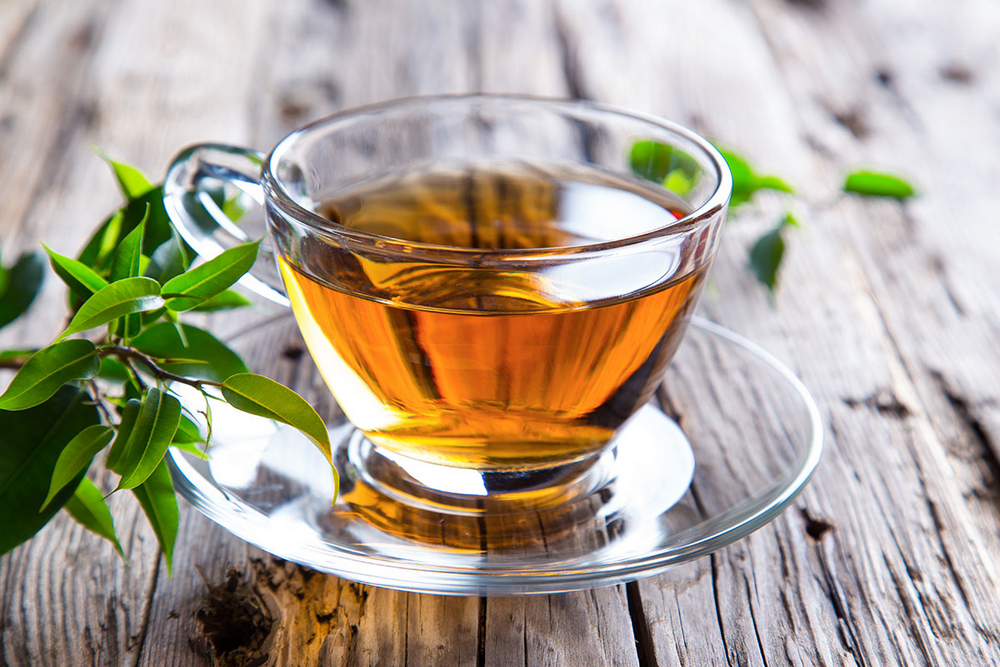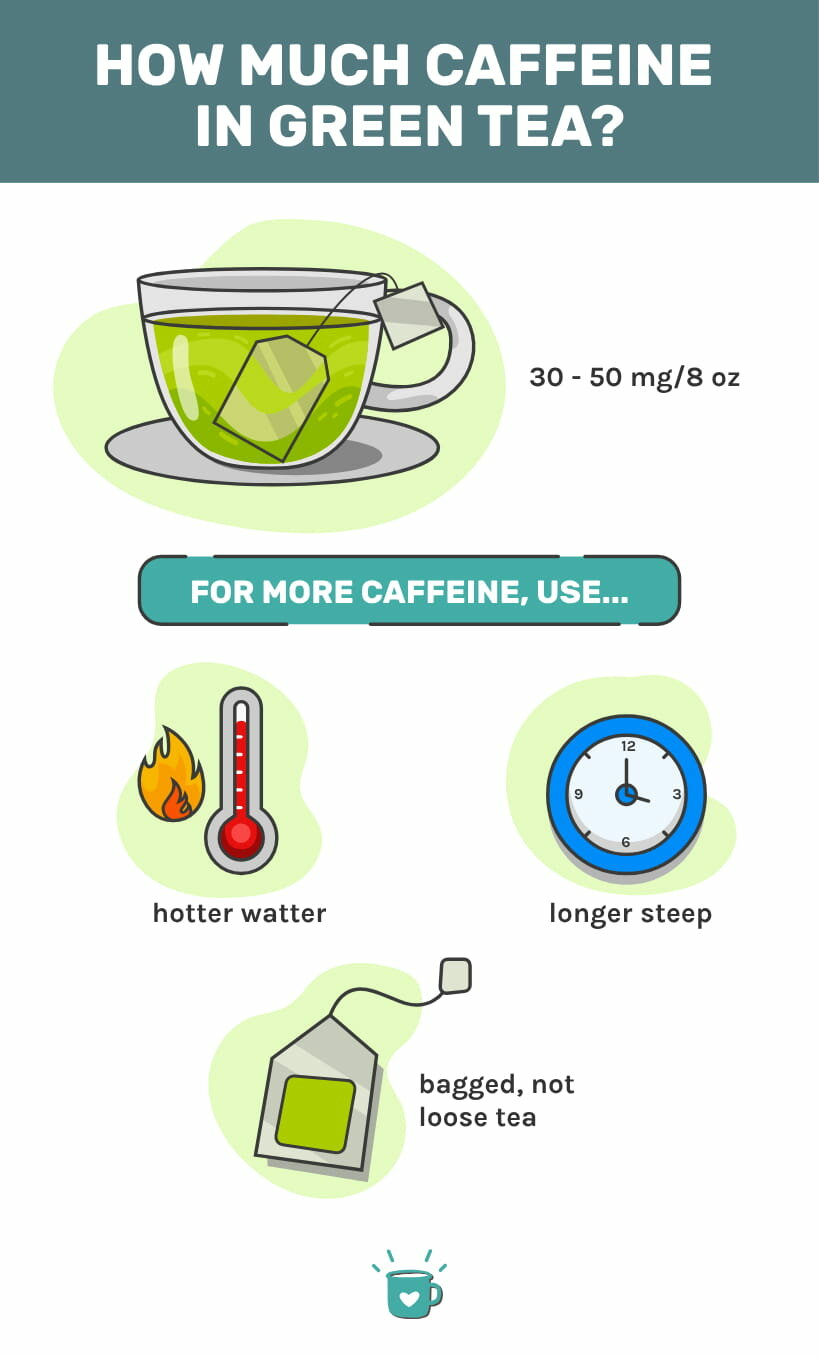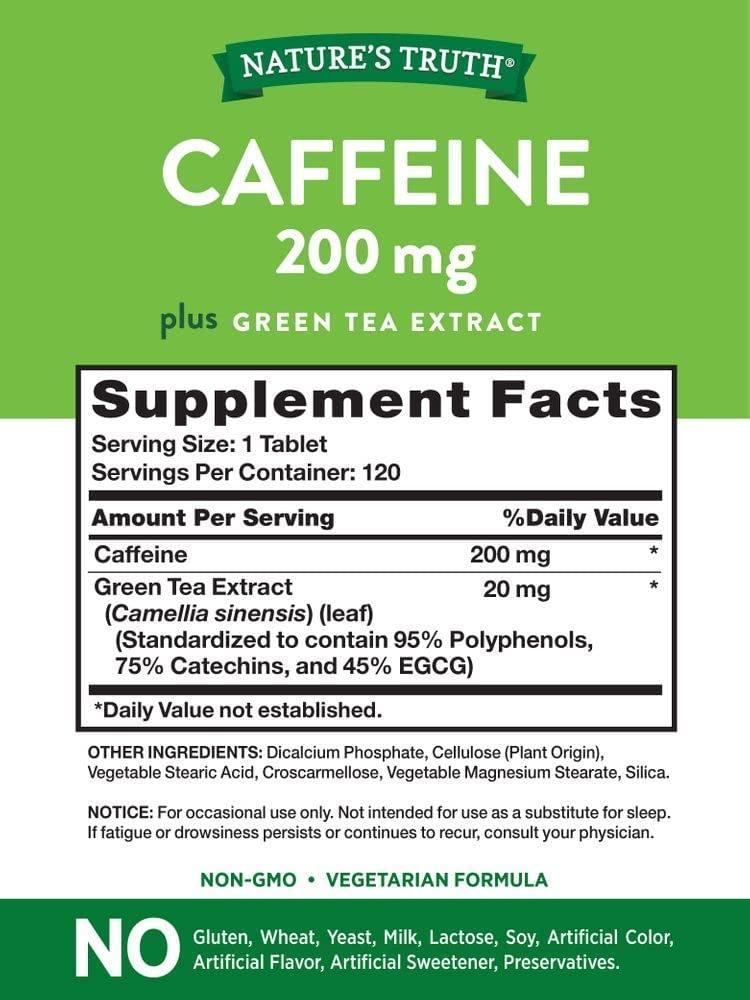Content Menu
● Understanding Green Tea
● Caffeine in Green Tea
● Green Tea Extract: What Is It?
● Caffeine Content in Green Tea Extract
● Potential Benefits of Caffeine in Green Tea Extract
● Considerations and Potential Side Effects
● Decaffeinated Green Tea Extract
● Choosing the Right Green Tea Extract
● Incorporating Green Tea Extract into Your Routine
● Conclusion
Green tea has been consumed for thousands of years, revered for its refreshing taste and potential health benefits. In recent years, green tea extract has gained popularity as a concentrated form of green tea's beneficial compounds. However, one question that often arises is whether green tea extract contains caffeine. To answer this question and explore the topic in depth, we need to delve into the world of green tea, its components, and the process of creating green tea extract.

Understanding Green Tea
Green tea is made from the leaves of the Camellia sinensis plant, the same plant used to produce other types of tea such as black tea, oolong tea, and white tea. The difference lies in the processing methods. Green tea leaves are minimally processed, typically heated shortly after harvesting to prevent oxidation. This minimal processing helps preserve the natural compounds found in the tea leaves, including caffeine and various beneficial antioxidants.
Caffeine in Green Tea
Before we discuss green tea extract, it's important to understand the caffeine content in regular green tea. Green tea does contain caffeine, albeit in lower amounts compared to other popular caffeinated beverages like coffee. The amount of caffeine in green tea can vary depending on several factors:
1. Tea variety: Different types of green tea can have varying levels of caffeine. For example, matcha, a powdered form of green tea, typically contains more caffeine than other green tea varieties.
2. Brewing method: The way you prepare your green tea can affect its caffeine content. Longer steeping times and hotter water temperatures can extract more caffeine from the leaves.
3. Leaf age: Younger tea leaves tend to have higher caffeine content compared to older leaves.
4. Processing: While green tea undergoes minimal processing, the specific techniques used can influence the final caffeine content.

Green Tea Extract: What Is It?
Green tea extract is a concentrated form of green tea, typically available in capsules, tablets, or liquid form. It is made by extracting the active compounds from green tea leaves, resulting in a product that contains higher concentrations of these beneficial substances. The main components of green tea extract include:
1. Catechins: These are powerful antioxidants, with epigallocatechin gallate (EGCG) being the most abundant and well-studied.
2. Polyphenols: Another group of antioxidants that contribute to the potential health benefits of green tea.
3. Caffeine: Yes, green tea extract does contain caffeine, although the amount can vary significantly between products.
4. L-theanine: An amino acid that may help promote relaxation and reduce stress.
Caffeine Content in Green Tea Extract
Now, to address the main question: Does green tea extract contain caffeine? The answer is yes, in most cases. However, the amount of caffeine in green tea extract can vary widely depending on several factors:
1. Extraction process: The method used to create the extract can influence how much caffeine is retained in the final product.
2. Standardization: Some manufacturers standardize their extracts to contain specific amounts of certain compounds, including caffeine.
3. Decaffeination: Some green tea extracts are specifically processed to remove caffeine, resulting in decaffeinated or low-caffeine options.
4. Serving size: The amount of caffeine per serving can vary based on the concentration of the extract and the recommended dosage.
It's important to note that the caffeine content in green tea extract can be significantly higher than that found in a typical cup of green tea. This is because the extract is a concentrated form of the tea's components. While a cup of green tea might contain a moderate amount of caffeine, a single serving of green tea extract could potentially contain as much caffeine as a cup of coffee or more, depending on the specific product.

Potential Benefits of Caffeine in Green Tea Extract
The presence of caffeine in green tea extract isn't necessarily a negative aspect. Caffeine, when consumed in moderation, can offer several potential benefits:
1. Increased alertness and focus: Caffeine is well-known for its ability to enhance cognitive function and improve mental alertness.
2. Metabolism boost: Some studies suggest that caffeine may help increase metabolic rate and promote fat oxidation.
3. Physical performance: Caffeine can potentially improve physical performance by increasing adrenaline levels and mobilizing fatty acids from fat tissues.
4. Antioxidant properties: Caffeine itself has some antioxidant properties, which may contribute to the overall antioxidant effects of green tea extract.
5. Synergistic effects: The combination of caffeine and other compounds in green tea extract, such as L-theanine, may provide a more balanced and sustained energy boost compared to caffeine alone.
Considerations and Potential Side Effects
While the caffeine in green tea extract can offer benefits, it's essential to be aware of potential side effects and considerations:
1. Sensitivity to caffeine: Some individuals may be more sensitive to caffeine's effects, experiencing jitters, anxiety, or sleep disturbances.
2. Interactions with medications: Caffeine can interact with certain medications, so it's important to consult with a healthcare provider before using green tea extract supplements.
3. Overconsumption: Due to the concentrated nature of green tea extract, it's easier to consume higher amounts of caffeine than you would from drinking green tea. This can lead to caffeine-related side effects if not monitored carefully.
4. Time of consumption: Taking green tea extract late in the day may interfere with sleep patterns due to its caffeine content.
5. Pregnancy and breastfeeding: Pregnant and breastfeeding women should be cautious about their caffeine intake, including from green tea extract.

Decaffeinated Green Tea Extract
For those who are sensitive to caffeine or wish to avoid it altogether, decaffeinated green tea extract options are available. These products undergo additional processing to remove most of the caffeine while retaining other beneficial compounds. However, it's worth noting that the decaffeination process may also remove some of the beneficial catechins and other antioxidants.
When choosing a decaffeinated green tea extract, it's important to look for products that use gentle decaffeination methods to preserve as many of the beneficial compounds as possible. Some common decaffeination methods include:
1. Carbon dioxide (CO2) method: This process uses pressurized carbon dioxide to remove caffeine and is considered one of the gentler methods.
2. Water processing: This method uses water to extract caffeine but may also remove some water-soluble antioxidants.
3. Ethyl acetate method: While effective at removing caffeine, this method may alter the flavor profile of the extract.
Choosing the Right Green Tea Extract
When selecting a green tea extract supplement, consider the following factors:
1. Caffeine content: Look for products that clearly state the caffeine content per serving. This information will help you manage your overall caffeine intake.
2. Standardization: Choose extracts that are standardized for specific compounds, such as EGCG, to ensure consistent potency.
3. Third-party testing: Opt for products that have been tested by independent laboratories for purity and potency.
4. Form: Green tea extract is available in various forms, including capsules, tablets, and liquid. Choose the form that best fits your lifestyle and preferences.
5. Organic certification: If possible, select organic green tea extracts to minimize exposure to pesticides and other chemicals.

Incorporating Green Tea Extract into Your Routine
If you decide to use green tea extract, here are some tips for incorporating it into your daily routine:
1. Start with a low dose: Begin with the lowest recommended dose to assess your tolerance, especially if you're sensitive to caffeine.
2. Monitor your caffeine intake: Keep track of your total caffeine consumption from all sources, including green tea extract, coffee, and other beverages.
3. Time your intake: Take green tea extract earlier in the day to avoid potential sleep disturbances.
4. Combine with a healthy lifestyle: Green tea extract is not a magic solution. Combine its use with a balanced diet and regular exercise for optimal health benefits.
5. Stay hydrated: Caffeine can have a mild diuretic effect, so ensure you're drinking enough water throughout the day.
6. Cycle your usage: Consider taking breaks from green tea extract periodically to prevent developing a tolerance to its effects.
Conclusion
In conclusion, green tea extract does typically contain caffeine, although the amount can vary significantly between products. The presence of caffeine in green tea extract can offer potential benefits, such as increased alertness and improved metabolism. However, it's essential to be aware of the caffeine content and consider any personal sensitivities or health conditions.
For those seeking the benefits of green tea extract without the stimulating effects of caffeine, decaffeinated options are available. Regardless of which type you choose, it's crucial to select high-quality products from reputable manufacturers and to use them as part of a balanced, healthy lifestyle.
As with any dietary supplement, it's always wise to consult with a healthcare professional before adding green tea extract to your routine, especially if you have any pre-existing health conditions or are taking medications. By making informed choices and using green tea extract responsibly, you can potentially harness its benefits while managing your caffeine intake effectively.
Remember, while green tea extract can be a valuable addition to a healthy lifestyle, it's not a substitute for a balanced diet, regular exercise, and good sleep habits. Use it as a complement to your overall wellness strategy, and you may find that it enhances your energy levels, supports your antioxidant intake, and contributes to your overall health and well-being.
































